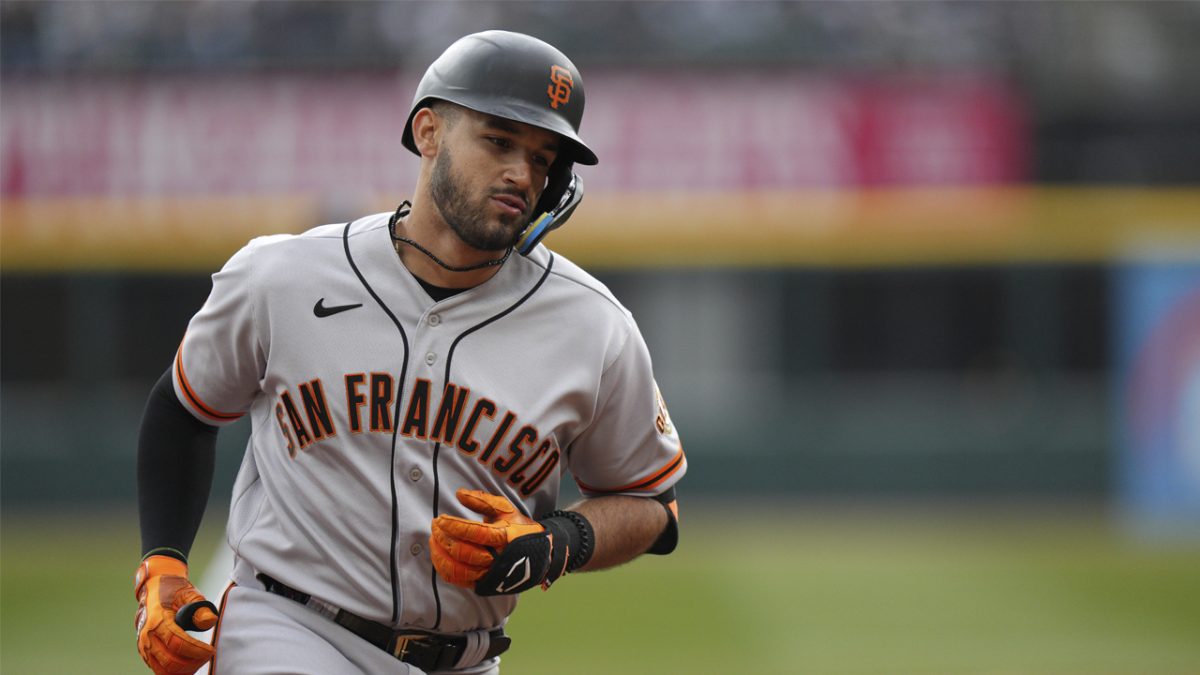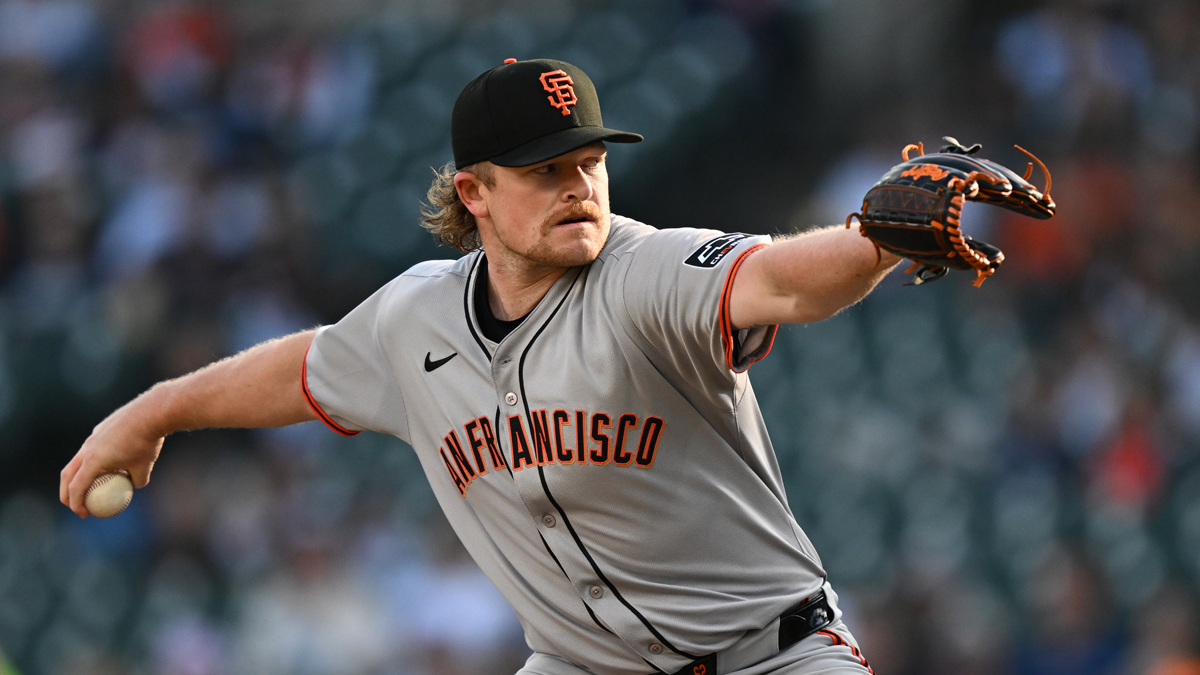Editor's note: Twice a week, NBC Sports Bay Area will look back on biggest "What If?" moments in Bay Area sports history in our "Hindsight 2020" series. The fourth installment: Would Matt Williams have broken the home run record in 1994 if there wasn't an MLB strike?
You don't have to be a diehard baseball fan to know what the phrase "Summer of '98" means. It was the year Mark McGwire and Sammy Sosa captured the attention of a nation, dragging America's pastime back into the limelight just three years after the conclusion of a harmful work stoppage.
Day after day, the two sluggers traded blows. Their pursuit led every highlight show, and newspapers across the country added a two-man home run tracker to their baseball scoreboard pages. The race, which ended with McGwire setting the single-season home run record, was the subject of books, TV shows, a dated "Chicks Dig the Long Ball" Nike campaign, and now, an upcoming documentary. That summer also led to both men testifying in front of Congress.
With our All Access Daily newsletter, stay in the game with the latest updates on your beloved Bay Area and California sports teams!
McGwire and Sosa became household names, but what if someone else should have been the one to get all that attention? Should a Giant have broken Roger Maris' long-standing home run record first?
Four years before the mark went down, Matt Williams was quietly chugging along towards 61 home runs during the 1994 season. In his final game before the league shut down due to the MLB players' strike on Aug. 12, Williams went deep at Wrigley Field, notching his 43rd homer of the year. That put him right on track to challenge the record Maris set in 1961. When baseball disappeared, so too did Williams' shot to break one of the most hallowed records in sports.
Williams has remained in the game, and currently is managing the Kia Tigers in the KBO. He recalled via email recently to NBC Sports Bay Area that the chase was not at the forefront of the conversation back then.
"It is interesting thinking back on that season," Williams said. "As you know, there were three players at the All-Star break that were within reach. It was a different time, but there was no real media interest on the chase because the hot topic was the impending labor strife. Not a lot of questions about how many home runs might be hit."
San Francisco Giants
Find the latest San Francisco Giants news, highlights, analysis and more with NBC Sports Bay Area and California.
There were no daily trackers back then, but perhaps there should have been. Williams was on pace to do something remarkable.
Williams had started 110 of 115 games at third base, averaging one homer every 10.35 at-bats. He tended to pick them up in bunches that season -- he had five two-homer games and homered three games in a row on three separate occasions -- but if you take a step back you see the type of consistency that could have vaulted Williams toward the record over the final two months. He had 10 homers in April, nine in May, 10 in June and 11 in July, and with three over his first nine games in August, he was on pace for another similar month.
Williams had 20 homers at Candlestick and 23 on the road. He did damage against both righties (27 homers) and lefties (16). One of the hardest parts of such a chase is balancing rest down the stretch with the fact that every day off is three or four missed opportunities to go deep, but Williams, at 28 years old, was certainly durable enough to dig deep in late September. He had played at least 145 games in four consecutive seasons, including back-to-back years of 159 and 157 appearances.
[GIANTS INSIDER PODCAST: Listen to the latest episode]
So let's assume that Dusty Baker, on a team that was right in the thick of the NL West race, would have let Williams push hard in search of 61. Perhaps he starts 45 of the final 47 games, pinch-hitting in the other two. That would have given him about 183 additional at-bats had the season continued, and if he had homered at the same rate the rest of the year, you can tack on 17.7 home runs to the 43 that he already had.
Williams was right on pace for 60 or 61 home runs, and he was tracking with the later chases, too. With 43 homers through 115 games, Williams matched the 1998 pace of Sosa, who would go on to hit 66 homers. Bonds had 49 homers through 115 games and McGwire had 46, but, of course, both of those men would go on to reach the seventies, while all Williams had to do in 1994 was get to 62.
There's one more piece of intriguing evidence. When baseball returned in 1995, Williams was even better. He had 13 homers through 36 games -- he also was batting .381 -- before breaking his foot. Williams actually slightly improved his home run rate to one every 10.31 at-bats during the first half of 1995, so it's reasonable to assume that the 1994 success could have continued if that season had.
There's much more to this than simple math, though.
Williams said he didn't feel pressure to chase Maris because all of the attention that summer was on a looming work stoppage. How would he have handled the onslaught of media and attention from opposing teams if he was soaring through the fifties in September? We'll never know, but we do know he probably wouldn't have been handling it alone.
One of the most amazing things about that 1994 season is that Williams was far from alone in chasing Maris down. When the season stopped, Ken Griffey Jr. had 40 homers and was on pace for about 58. Jeff Bagwell had 39, Frank Thomas had 38 and Giants teammate Barry Bonds had 37.
[RELATED: Everything Giants fans need to know about MLB draft]
The stoppage memorably cost Felipe Alou's Montreal Expos a shot at a World Series title and Tony Gwynn, who was batting .394, a chance to hit .400, something unheard of in the modern game. It also wiped out what looked to be an all-time home run race. With a hot week, any of those sluggers could have joined Williams in chasing Maris, and as he looked back on that summer of 1994, that's part of what stood out.
Williams primarily batted cleanup that season, right behind Bonds, who led the league in walks and had an OPS approaching 1.100. Bonds would finish fourth in the MVP voting, two spots behind Williams.
Without a strike in 1994, would Matt Williams have broken the home run record? Perhaps he would have done it with the help of the man who would set a new mark seven years later.
"I think I may have had a chance because of one reason. That reason is that Barry was hitting homers at a record pace when the season ended," Williams said this week. "If you had your choice as a manager, you would probably pitch to [me] rather than to Bonds. (I'm) not really sure how it would have played out and I have never wondered what if, but it would have been fun to see how it went."


